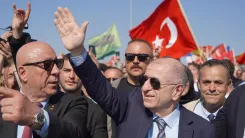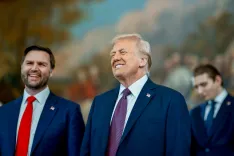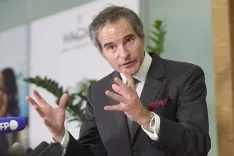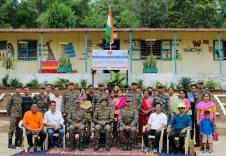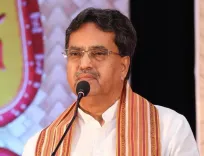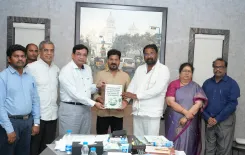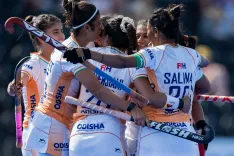What Will Be The Outcome of Talks Between Political Parties and the National Consensus Commission in Bangladesh?
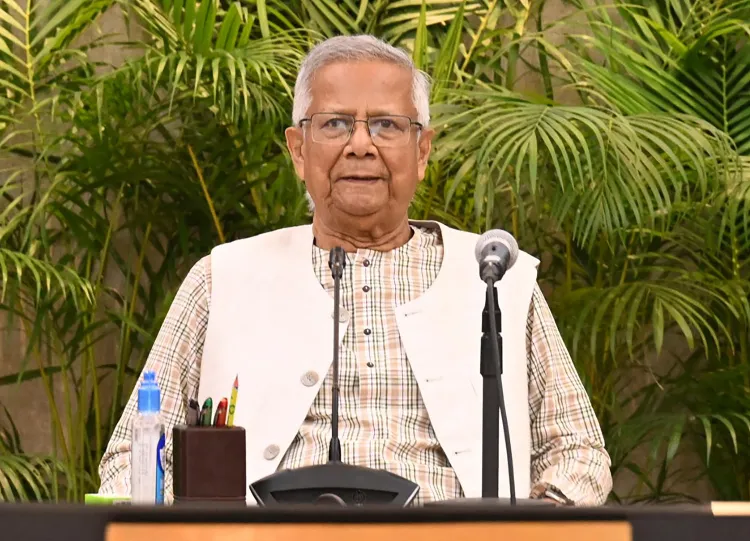
Synopsis
Key Takeaways
- Second phase of talks between political parties and the NCC began.
- Focus on finalizing recommendations for the July Charter.
- Consensus sought on contentious issues.
- BNP confirms opposition chairmanship in key committees.
- Political unrest continues to challenge stability in Bangladesh.
Dhaka, June 17 (NationPress) The second round of conversations between political factions and the National Consensus Commission (NCC) commenced on Tuesday amid ongoing political turmoil and instability in Bangladesh.
This latest phase of discussions aims to finalize the recommendations from various reform commissions established by the interim government and to formulate the July Charter. The focus of these discussions is to continue addressing the reform commission recommendations that were not completed in the initial round, as reported by local media.
The NCC has announced plans to engage in discussions with 30 political parties, including the Bangladesh Nationalist Party (BNP), in phases until Thursday.
According to a statement from the Commission, "It will stress the importance of achieving consensus on contentious topics such as Article 70 of the Constitution, the appointment process for presidents of Standing Committees, representation of women, establishing a bicameral parliament, and appointing the chief justice."
During the meeting, NCC Vice-Chairman and political scientist Ali Riaz, who is based in the U.S., mentioned that efforts are being made to finalize the July Charter by the end of this month following these discussions with political parties. This proposed charter is expected to act as a foundational framework for upcoming reforms.
Riaz expressed gratitude towards the political parties for their cooperation, stating, "The national consensus commission is dedicated to preparing the National Charter by July. We hope that with continued collaboration, we will achieve our objectives. Our goal is to reach a broad consensus, even if total agreement on all matters is not possible."
He added, "While we may not reach consensus on every issue, we can make necessary concessions in the interest of the nation and state to find common ground. Yet, it is uncertain whether we will resolve all issues."
BNP Standing Committee member Salahuddin Ahmed informed reporters during a break in the discussions that in the upcoming parliament, four out of 50 parliamentary standing committees will be chaired by opposition members. He noted that all parties have agreed to assign the chairmanship of four key committees to the opposition.
"These include the Public Accounts Committee, Privileges Committee, Estimation Committee, and Public Undertakings Committee. The proposal received unanimous support during the commission's meeting," the BNP leader stated.
He also remarked that proportional representation for the opposition based on numerical strength will be implemented in other standing committees as well.
Reports indicate that the radical Islamist party Jamaat-e-Islami opted out of the second round of NCC discussions due to dissatisfaction with a recent joint statement issued after a meeting in London between Chief Advisor Mohammad Yunus and BNP acting chairman Tarique Rahman.
Earlier this month, Yunus presided over an NCC meeting where there was an increasing consensus among political leaders on the urgent need for timely elections.
The absence of a clear reform roadmap and election schedule has sparked significant political unrest in Bangladesh, as several party leaders question the controversial policies and poor performance of Yunus's dubious advisors.
As pressure mounted on him, Yunus had previously expressed a desire to resign out of frustration, a development that stirred considerable discussion in the nation's political circles.

